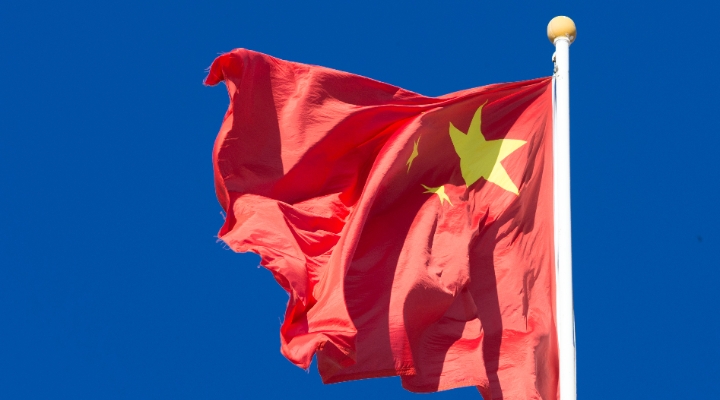
The Chinese government is considering compelling all institutions with a school curriculum to register as non-profit organizations, challenging the profitability of private tutoring firms across the country.
The move from Beijing is an attempt to alleviate the cost of raising and educating children in China by making tutoring affordable for parents, to ultimately drive the national birth rate. Last month, the country relaxed the restrictions to allow couples to have up to three children.
“The greatest impact of the government’s plans [in the education sector] will be felt by the after-school tutoring industry, and given that such a high level of tightening policy in the industry had not been anticipated by the market,” says Jenny Tsai, senior equity analyst at Morningstar. In addition to banning them from profiting from tutoring services, the government will also restrict hours of tutoring on weekends, summer, and winter vacations.
Such rules will certainly impact common business models in the sector and translate into financial impacts for the players, for example driving down utilization rates in offline education.
Other than operations, the new policy will rule out foreign ownership from the space. Any forms of partnership via franchise, merger and acquisition or Variable interest entity (VIE) arrangements with retroactive effect will not be allowed. Tsai says that early issues with barring foreign investments from investing in local schools would be cash flow and cost burden. But in the worst-case scenario, the new rules may mean potential delisting of some players.
The proposed reforms led to a meltdown of US-listed Chinese education providers. Shares in TAL Education (TAL) and New Oriental Education (EDU) more than halved since Friday (July 23) reacting to this unexpected order. TAL and New Oriental ended US trading hours of July 27 at US$5.51 and US$2.19, falling 73.1% and 65.8% respectively since last Friday.
Looking ahead, both New Oriental and TAL would need to adjust their business focus relating to academic programs for pupils in kindergarten to Grade 12. Tsai says: “They are likely spin-off the non-profit mandatory education businesses in the longer term while keeping high schools and other business such as overseas test prep, adult English, and general English.” Meanwhile, to keep their listing entity to remain floating, she’d expect both providers to invest in non-academic tutoring on topics such as art, computer coding, sport, music, and other extracurricular programs.
The Latest Regulatory Ruffle
Regulatory shake-ups have made 2021 quite an eventful period for the Chinese stock market so far. The line-up of probes and reforms has upset investors betting many of the rising stars in China, from the antitrust probe on Alibaba to the data privacy investigation on Didi Global. More traditional businesses, like the real estate business, also face a new set of rules, such as the ‘Three Red Lines’, which restricts their gearing levels.
Morningstar analysts remind investors that nuances of all these regulatory changes should not be omitted when comparing them on a cross-sector basis.
Lorraine Tan, Morningstar’s director of equity research in Asia, explains: “The round of policy changes [within the education sector] has been much more significant to the way people do business for an entire industry, compared to just fine-tuning or evolution of pricing mechanisms.” She describes that the former was ‘a complete shock and was quite precedented’, but rather unlikely to spill over to other segments.
“Realistically, it is unlikely that [the Chinese government] is going to make the whole Internet sector nonprofit. Some of the scrutiny that's been going on with that space should be more limited going forward,” adds Tan, but citing difficulties in mapping the next targeted areas for policy reform and the scale of potential changes.
At this juncture, Tan believes investors should remain rational sticking to their investment discipline and avoid being influenced by sentiment.
“What's going on [in the market] is that people are throwing out the baby with the bathwater. They tend to throw out stuff to be safe. Unlike the US market, which is rather overvalued as a whole, we still see quite several opportunities in Asia, particularly following this pullback. It's not a bad thing for investors to be sidelined and see what comes up.” Currently, Asia’s equities under Morningstar’s coverage are trading around their fair value estimates.
For TAL Education and New Oriental Education, Morningstar aims to examine the impact of these developments on our cash flow forecasts and revise our valuations by August 6.
©2021 Morningstar. All rights reserved. The information, data, analyses and opinions presented herein do not constitute investment advice; are provided as of the date written, solely for informational purposes; and subject to change at any time without notice. This content is not an offer to buy or sell any particular security and is not warranted to be correct, complete or accurate. Past performance is not a guarantee of future results. The Morningstar name and logo are registered marks of Morningstar, Inc. This article includes proprietary materials of Morningstar; reproduction, transcription or other use, by any means, in whole or in part, without prior, written consent of Morningstar is prohibited. This article is intended for general circulation, and does not take into account the specific investment objectives, financial situation or particular needs of any particular person. Investors should consult a financial adviser regarding the suitability of any investment product, taking into account their specific investment objectives, financial situation or particular needs, before making any investment decisions. Morningstar Investment Management Asia Limited is licensed and regulated by the Hong Kong Securities and Futures Commission to provide investment research and investment advisory services to professional investors only. Morningstar Investment Adviser Singapore Pte. Limited is licensed by the Monetary Authority of Singapore to provide financial advisory services in Singapore. Either Morningstar Investment Management Asia Limited or Morningstar Investment Adviser Singapore Pte. Limited will be the entity responsible for the creation and distribution of the research services described in this article.













.png)



.jpg)





